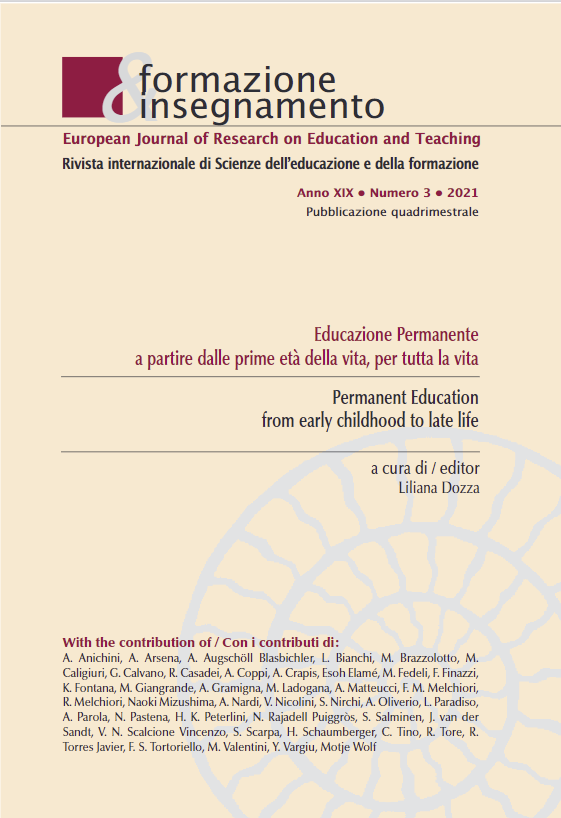Steiner’s sociological theory of the threefold social order: current or outdated in contemporary social contexts?
DOI:
https://doi.org/10.7346/-fei-XIX-03-21_18Abstract
This paper examines Steiner’s theory of the ‘threefold social order’, with the aim of evaluating its relevance and feasibility today. After describing Steiner’s attitude and positions towards the economic, political and cultural problems of European society in his time, the analysis focuses on his proposals for the reorganization of the respective sectors, with an interpretative effort aimed at grasping his lines of argumentation. The system proposed by Steiner es-sentially provides for autonomous management of the economic, politicallegal and school sectors. His proposals highlight the benefits that would derive from such a new social order. Greater effectiveness of the education system, safeguarding the dignity of the worker, and promoting individual capabilities are some of the advantages that he claims would derive from this new structure. Finally, the study attempts to make an overall assessment of the theses defended by Steiner in relation to our current era, although with an awareness that the debate remains open.
Downloads
Published
How to Cite
Issue
Section
License
Copyright (c) 2021 Pensa MultiMedia

This work is licensed under a Creative Commons Attribution 4.0 International License.
Formazione & insegnamento is distributed under Attribution 4.0 International (CC BY 4.0).
For further details, please refer to our Repository & Archiving Policy, as well as our Copyright & Licensing Terms.





